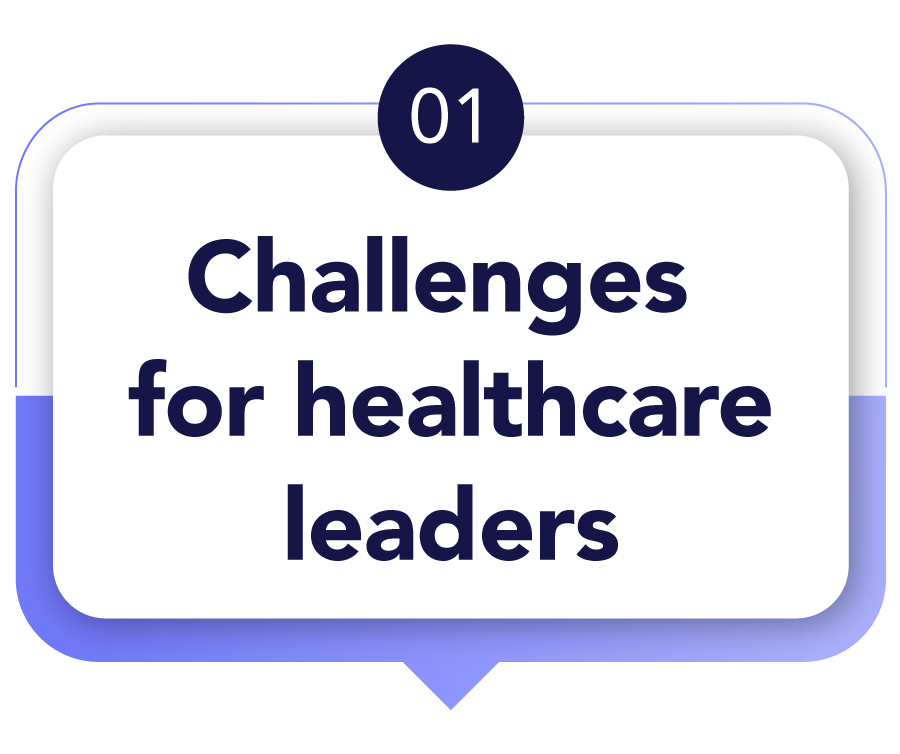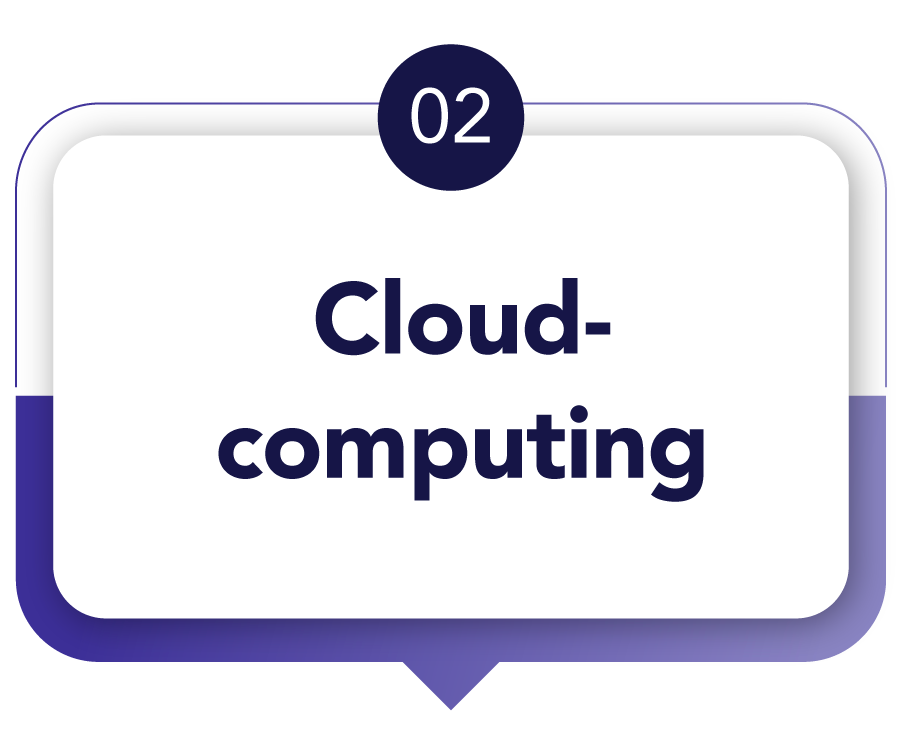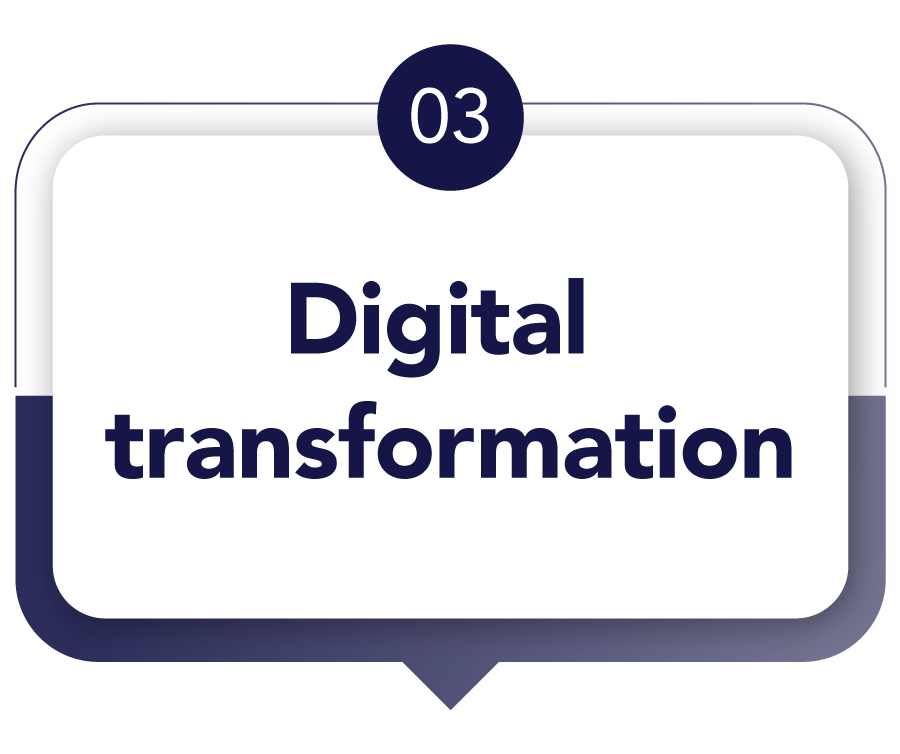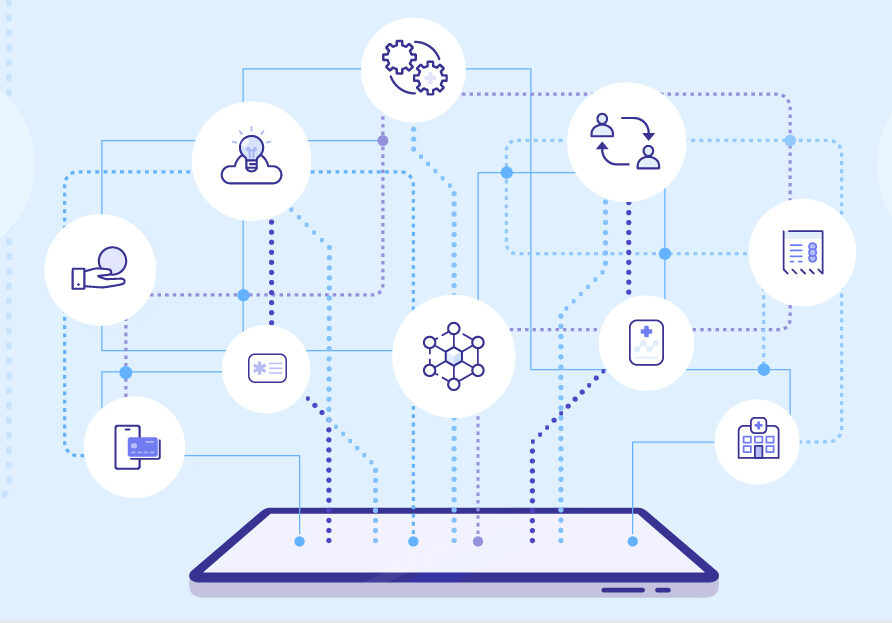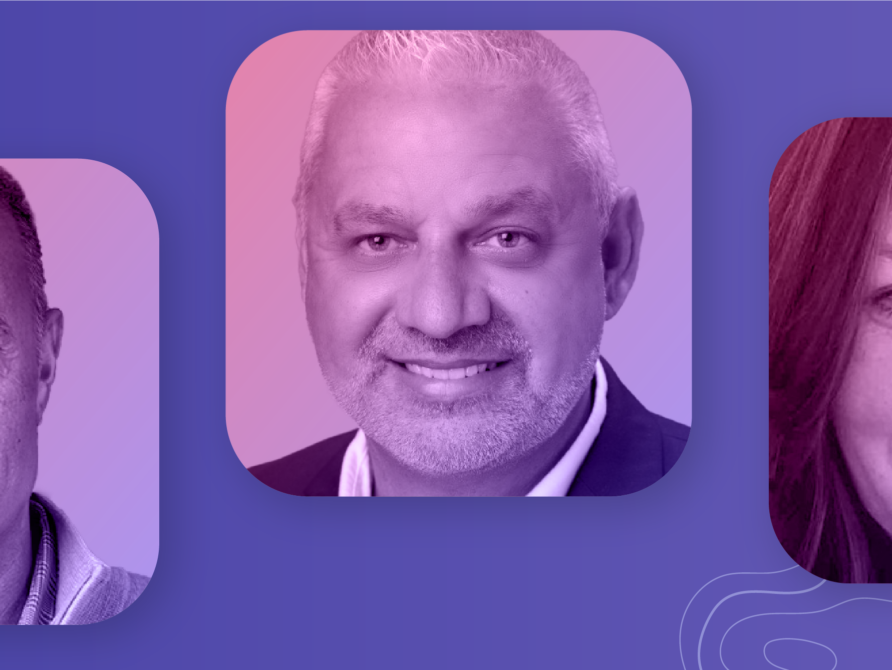What healthcare leaders are looking for today to bring a brighter tomorrow
As a new era of healthcare delivery begins, it’s important to remember that evolution in healthcare is not new. This industry is complex and has encountered ongoing change for decades. Altera Digital Health is not a stranger to these evolutions, and as a healthcare IT partner with a proven record of outcomes, we are well poised to help organizations ascend to new heights.
We believe digital health is the intersection of healthcare and technology that empowers patient populations to manage their health and wellness through flexible, integrated, interoperable and digitally enabled care modalities. The Sunrise™ Platform of Health is moving us in this direction. But it doesn’t end there.
On the journey upward, there will be challenges to overcome. As with any shift in the status quo, it’s important to understand the obstacles and unknowns that might keep healthcare leaders up at night. It will also be critical to get a better sense of cloud-computing and how it can be a key driver of change now, as the new era of digital health is gainfully underway. As you approach these challenges and make decisions for the overall health of your organization, learning what the digital health transformation looks like will put you ahead of the rest. And as your partner throughout this evolution, our unified platform of health approach will make this change as seamless as possible.

What is keeping healthcare leaders up at night?
The healthcare industry is incredibly complex and everchanging. Organizations must be flexible, resilient and innovative to thrive and retain market share. Over the last few years, the pace of change has accelerated, and this has only intensified since the COVID-19 pandemic. While many elements of healthcare’s rapid transformation are exciting, others challenge the vitality of healthcare organizations. Some of the major concerns healthcare leaders must manage include:

The evolving business of healthcare
One constant in healthcare is that this industry is always shifting. Given what is at stake—people’s lives and their health—it is a highly regulated industry. From information blocking to price transparency, healthcare organizations must use significant resources to ensure they remain compliant with regulations old and new. Similarly, changes in payment models from volume to value mean many organizations must rethink their financial and operational strategies. This constantly fluctuating environment poses challenges even for the most well-established, financially sound organizations.









Cybersecurity and the prevalence of attacks
Healthcare is a major target for cyberattacks and the prevalence of these incidents continues to rise. Forty-five million individuals in the U.S. were affected by healthcare breaches in 2021, representing a 32% increase year-over-year.
Cybersecurity incidents in the medical field can have adverse effects on patient care if electronic health records (EHRs) become inaccessible or corrupted. Additionally, they threaten organizations’ business continuity and can have major financial implications. In fact, breaches in healthcare are more costly than in any other industry.



Staffing shortages and resource allocation
Staffing shortages and clinician burnout have been on the rise for years in healthcare. The toll of the pandemic and the “Great Resignation” of employees across all industries have only compounded these intersecting issues. According to an annual survey from the American College of Healthcare Executives (ACHE), personnel shortages were hospital CEOs’ top concern in 2021—beating financial challenges for the first time since 2004.
To weather these issues, healthcare organizations must educate employees on the signs of clinician burnout so they can recognize it in themselves and their peers. Additionally, organizations need to support staff members under duress. This may include a reassessment of technology in place and exploration of solutions that enable a better clinician experience.









Competition in a consumer-driven climate
The consumerization of healthcare has driven hospitals and provider practices to adopt strategies from retail that satisfy consumers’ wants and needs—especially when it comes to digital. One study conducted by the Advisory Board found that 42% of patients would consider switching providers to gain a better digital experience.
Today’s healthcare organizations are not only facing their traditional competitors, but they also are competing with Big Tech and venture-backed startups. These new entrants challenge legacy business and service models with digital tools, virtual platforms and novel care delivery mechanisms. To attract and retain patients, traditional healthcare organizations need to increase patient access to care and offer personalized experiences that appeal to patients’ consumeristic tendencies.



Digital transformation
Healthcare’s transformation over the last two decades has largely been driven by the growth of digital technology. From telehealth to connected health devices, the practice of medicine has expanded well beyond the four walls of the traditional provider’s office due to advancements like cloud-computing. This new world has enormous potential to transform healthcare for the better but requires significant investment. Beyond the financial implications, healthcare leaders must prioritize usability in the technology they select to support caregivers and maximize effectiveness of new solutions across their organizations.
While these challenges may vary, they all threaten the sustainability of healthcare organizations. Those that embrace change—through the adoption of agile technologies that enable a seamless, equitable experience for all stakeholders—will not only survive but will show what this new age of healthcare can be.





Cloud-Computing –
What does it really mean
To address the top concerns of healthcare leaders, Altera Digital Health partners with Microsoft Azure to bring the power of cloud-computing to the Sunrise Platform of Health.
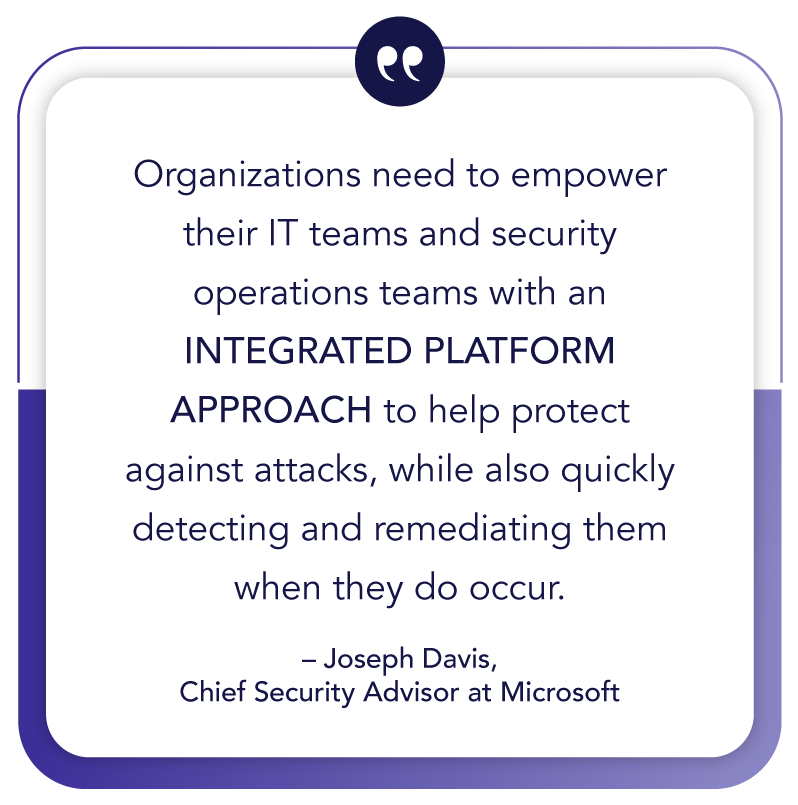

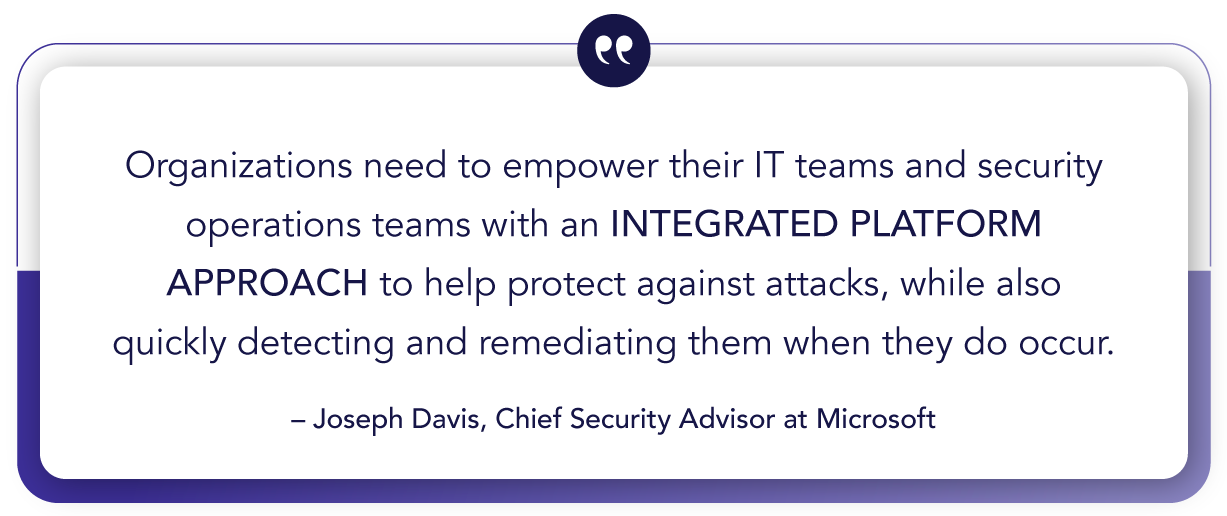

The number of cyberattacks against healthcare organizations are on the rise and the nature of these attacks is constantly evolving. “Security operations must modernize to meet modern threats,” said Joseph Davis, Chief Security Advisor at Microsoft, in an interview with Altera Digital Health (formerly an affiliate of Allscripts). “Organizations need to empower their IT teams and security operations teams with an integrated platform approach to help protect against attacks, while also quickly detecting and remediating them when they do occur.”
Our partnership with Microsoft Azure and our own strong security posture provides one of the most cyber‐secure public cloud infrastructures in the industry, exceeding Google, AWS and Oracle Cloud. Microsoft owns the data platform, the identity, the Operating System and the cloud portion. No other security company can make that claim. Because of this, Microsoft offers a competitive advantage and can unlock unique scenarios such as Conditional via Defender for Endpoint, Microsoft Cloud App Security and Conditional Access, Defender for Office 365 and Defender for Identity.
Exceptional cybersecurity enables our clients to focus on delivering quality care, knowing that through Azure, the Sunrise Platform of Health maintains patient privacy and information security.
The Microsoft Azure cloud also delivers powerful analytics, creating a platform for artificial intelligence (AI) and a Revenue Cycle Center of Excellence. Connecting to information exchanges and networks to pull patient data from disparate sources in real time enables providers to leverage more data to make better, faster care decisions. And with Human-Centered Design, we’re adding this feature without adding extra clicks.
In addition to improving patient care, AI can help combat provider burnout by relieving administrative burden. According to the Medscape National Physician Burnout & Suicide Report 2021, 79% of physicians experiencing burnout reported it beginning before the COVID-19 pandemic, and among these physicians, 58% said having too many bureaucratic tasks is a top contributor. The Sunrise Platform of Health can partner with solutions that use AI for tasks such as prescription management, staffing allocation, symptom checking/triage and more.
Finally, by integrating revenue cycle management (RCM) solutions and an electronic health record (EHR) powered by the cloud, AI can automate most aspects of revenue cycle management. When routine tasks are automatically handled by AI, staff can be more efficient by focusing on the special cases that require human intervention. AI also predicts and identifies trends, including the ability to learn and recognize what each insurance provider is willing to cover. With this capability, AI eliminates the need to submit all claims to all payers to see what gets approved. Instead, AI submits claims directly to the party responsible for paying, enabling organizations to spend less time on denials and receive payment faster than ever.
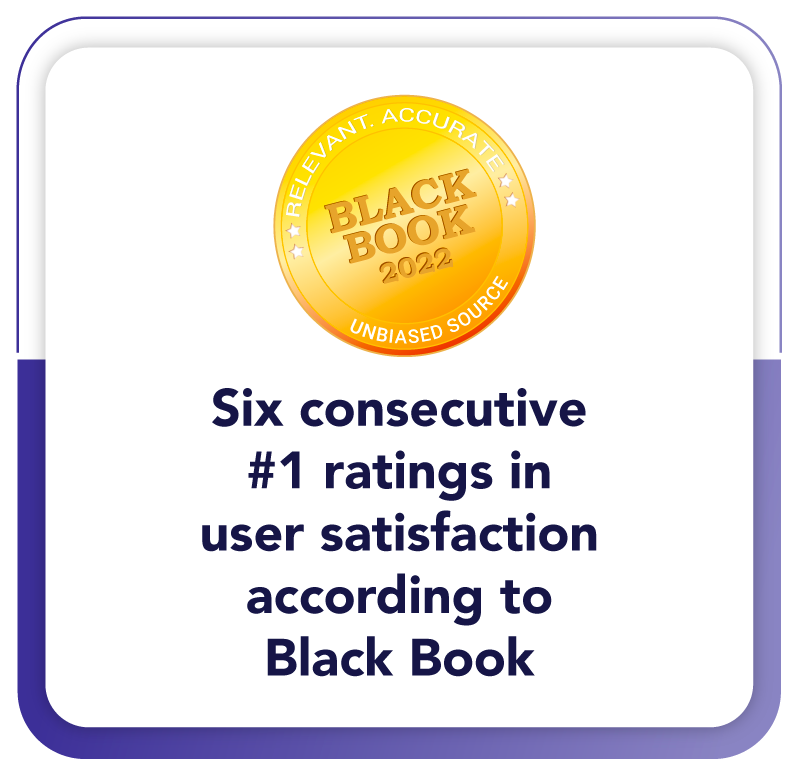

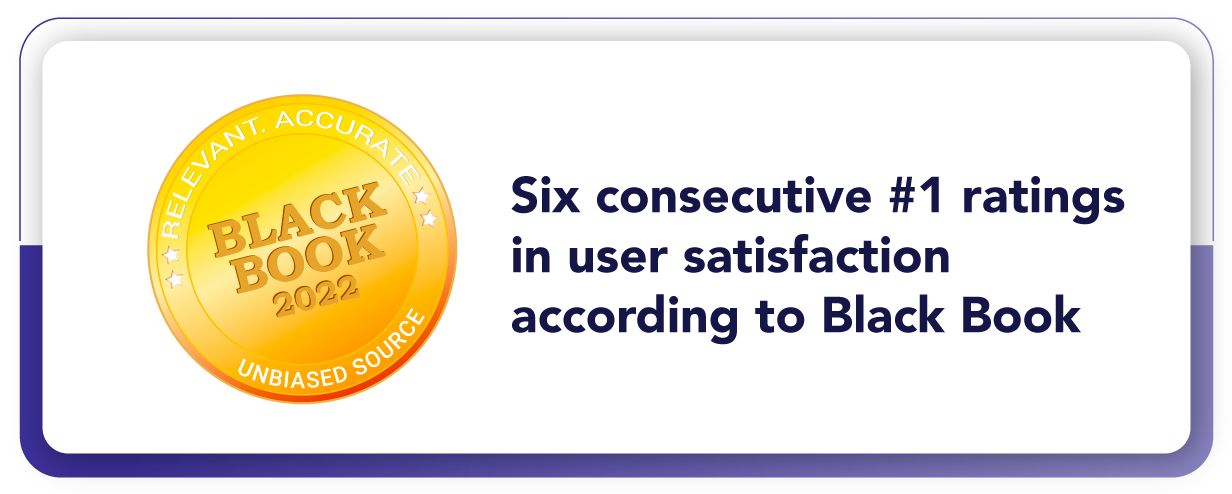

Our use of AI technology in EHRs has earned us six consecutive #1 ratings in user satisfaction for integrated EHR/RCM solutions in community hospitals, according to the annual Black Book Survey. And as digital health continues to evolve, we are committed to continuing our delivery of effective and thoughtfully designed solutions that harness the power of cloud-computing to improve outcomes in all aspects of healthcare.


What does a digital transformation in healthcare look like?
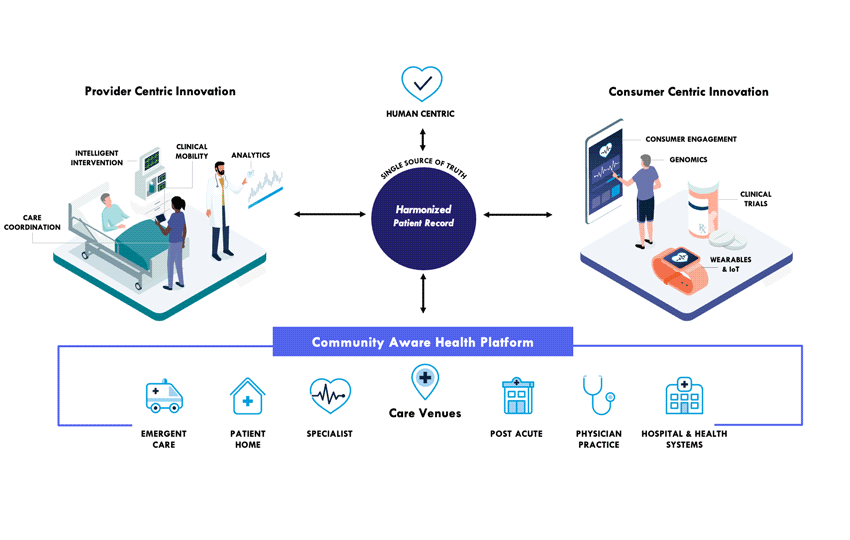
In an industry that doesn’t have an "off" button, it's essential for technology to not only keep up with providers, but outpace them, consistently providing the best possible information at the right time. For these solutions to be understood, there must be a digital literacy. The World Health Organization (WHO) defines digital health literacy as, “the ability to seek, find, understand, and appraise health information from electronic sources and apply the knowledge gained to addressing or solving a health problem.” Due to social determinants of health (SDOH), this literacy varies among both patients and providers, so standardizing the tools available is paramount. A digital transformation in healthcare needs to account for both this literacy and the constant need for change, while balancing the need for personalized care and the idea of population health.
As digital solutions upgrade alongside the most recent advancements in technology, they must account for the bigger picture of population health while maintaining the day-to-day duty of personalized care. While caring for patients is always the primary goal, providers must also juggle their bottom lines and keep an eye on the health of their community at large, so digital solutions need to account for everything. While this task sounds daunting, it's also thrilling, as the right solutions provide both care and financial benefits that can scale from an individual patient to an entire community. However, for a digital transformation to take hold, it must be accepted by caregivers first and foremost.
As discussed earlier, clinician burnout is running rampant throughout the healthcare industry. A digital transformation must speak to the challenges providers are facing and enable them to provide the best care possible while reducing mental strain. Improvements to EHR cloud storage and AI can work hand-in-hand with providers to lessen "click fatigue" and provide the most accurate patient data. Advancements in these solutions need to meet providers where they're at in terms of literacy and interoperability to create digital health successes.
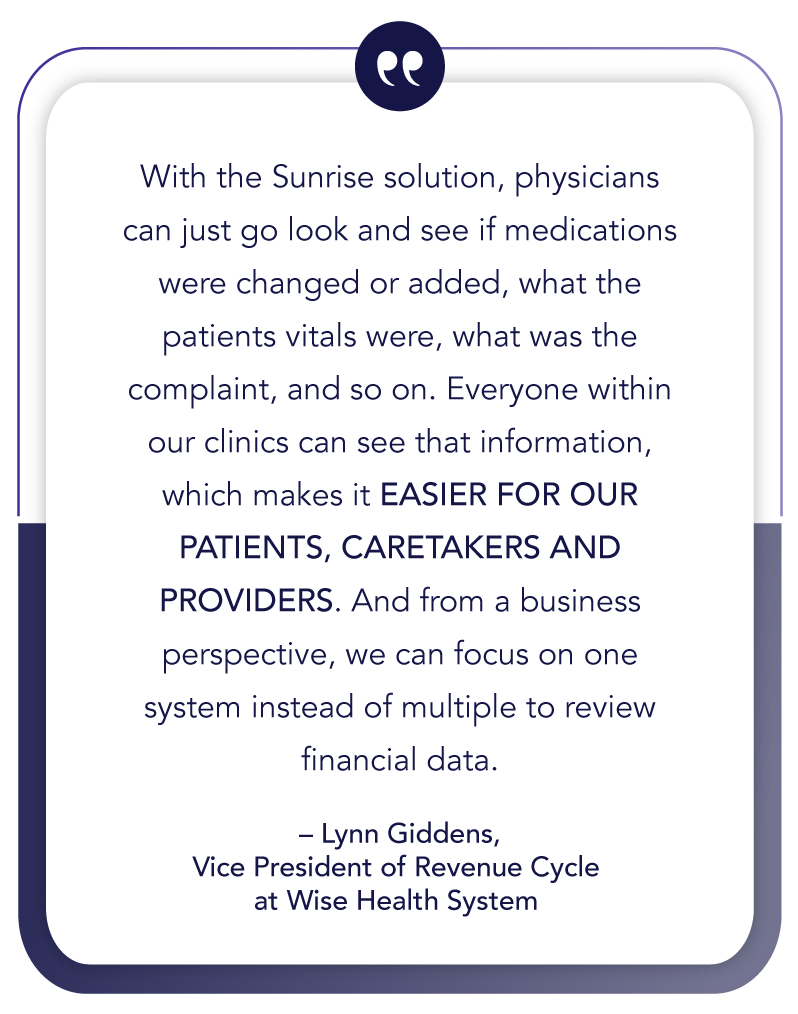

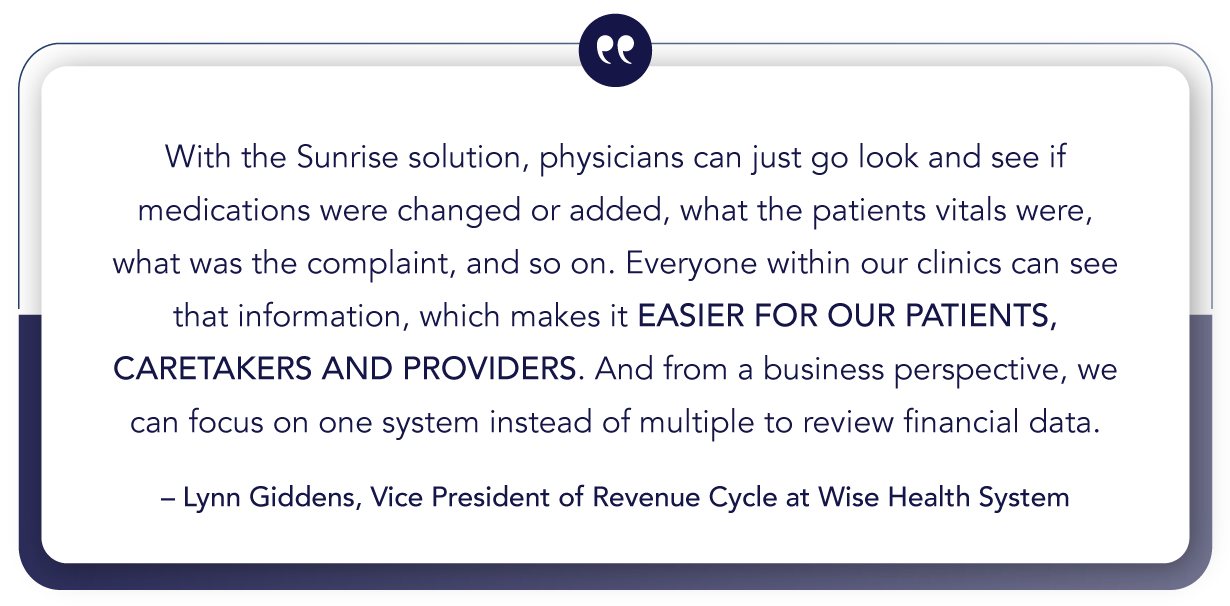

One example of a digital transformation in healthcare is Wise Health System, which sought a seamless, end-to-end solution that would help its clinicians see the entire patient picture. The leaders at Wise selected Sunrise™ because it provided a holistic system of care delivery as well as a promise of further technology advancement in the industry. Lynn Giddens, Vice President of Revenue Cycle at Wise explains, "With the Sunrise solution, physicians can just go look and see if medications were changed or added, what the patient’s vitals were, what was the complaint and so on. Everyone within our clinics can see that information, which makes it easier for our patients, caretakers and providers. And from a business perspective, we can focus on one system instead of multiple to review financial data."
This is an instance of a digital transformation in healthcare that meets the challenges providers are facing head on. It empowers clinicians, keeps up with advancements in technology and even enables leaders to secure better revenue cycle management. To keep up with the rapidly changing digital environment, healthcare organizations must find solutions that speak to all their needs as dynamic institutions. The care continuum is vast, but the right solution can help organizations of all sizes bridge that gap to enable the best care possible.
Let’s connect
Discover how we can partner with you and, together, ascend to new heights in healthcare delivery.
Insights
Learn from thought leaders and industry experts on today’s most pressing healthcare topics, including value-based care, interoperability, reimbursements, genomics, and more.


